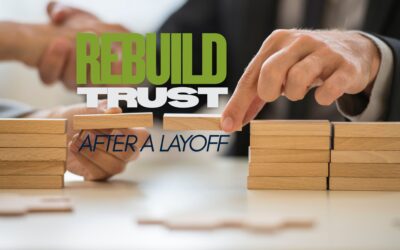The Impact of Ex-Employees on Your Company’s Reputation in Today’s Candidate-Driven Job Market.
We all know companies that if we had the opportunity, we would never consider working for them or refer one of our friends. Where did that information come from? Social media is filled with ex-employees’ thoughts on their previous workplace. Just because they don’t work for you anymore doesn’t mean they can’t impact your future. With the Oklahoma unemployment rate for all occupations at 3.2% and the national rate for college graduates over age 25 at 2.0% in January 2023, the war for talent has become critical. The labor market has changed from employer driven to candidate driven. Identifying, attracting, and landing the right person for each job has become a challenge for most companies. As a company, you can no longer post a job, expect overwhelming response, and have the pick of the group. Your name alone won’t be enough to attract the best and brightest.
source: tradingeconomics.com
In today’s data driven, online world it has become easy for a company’s reputation to be damaged by a viral video (TikTok, Bed and Bath, United Airlines) or a negative online review. A recent survey indicates 69% of jobseekers according to Inc Magazine would not take a job with a company that had a bad reputation, even if they were unemployed! Glassdoor and Indeed have become the go-to sites for employees to rate and evaluate companies. Current and former employees have access and can post reviews on both sites. Most job seekers can handle the random negative review, but if there’s more than a couple of people complaining about your company, they’ll take notice and look elsewhere.
3 Ways Ex-Employees can damage a company’s reputation.
1. Negative Glassdoor/Indeed reviews.
These sites give ex-employees the opportunity to share their experiences. The company is given a 1 – 5 rating, even CEOs are rated for their performance. Over the past year and a half, the number of reviews on Indeed has grown from 2,500 per week to nearly 55,000 per week. In a survey of 1,000 recent job seekers, 83% of respondents said employer reviews influenced their decision on where to apply, and 46% said that a company’s reputation had a significant impact in their final decision to accept a job offer.
2. Back-door references through LinkedIn.
With more than 400 million members, LinkedIn is the number one professional networking tool in the world. With just a few clicks, a job seeker can connect with former employees of a given company and seek their off-the-record thoughts on their former employer.
3. Facebook, Twitter, Pinterest, Instagram, TikTok, etc.
Angry ex-employees often take to these social media platforms to vent to friends, family and the world. Because bad news travels fast and colorful commentary is the most memorable, employees can spread the word quickly through these networks about their negative experience with your company. Plus, they use hashtags (i.e., try searching #bademployer) to make it possible for people to find their comments and share them with others.
What can you do to protect your company reputation in the marketplace?
Effectively transitioning employees, whether out of the organization or into new roles internally, can be a challenging endeavor. Engage a professional organization to successfully transition workers through quality outplacement, career transition, and redeployment services that position employees for career success. Providing an array of services and expert consultation, you can address the most complex of transitions and constructively support all employees who are involved. Layoffs are a complicated, yet frequent occurrence. Providing careful planning and flawless implementation to prevent erosion of your employment brand will protect your company’s reputation in the marketplace. Participants receive one-on-one support, including personal branding, resume development, social media, and interview People are worth the Investment coaching supplemented by 24/7 access to online tools and training. In addition, preplanning and post-lay off initiatives to support remaining employees and ongoing business activities will show compassion in this difficult time for all involved. Whether it is one person that for any reason does not fit the future organization or hundreds of employees globally that must be downsized due to organizational change, professional support is available to assist organizations manage a successful reduction in force and protect their reputation as an employer of choice.




